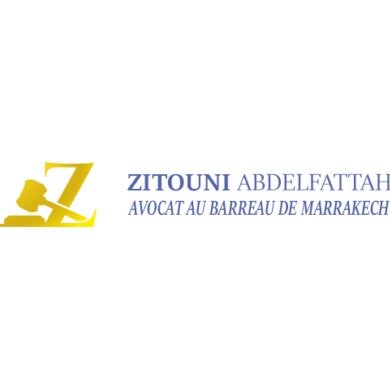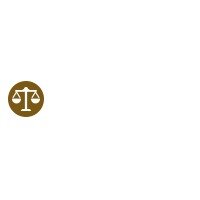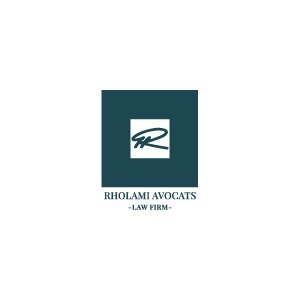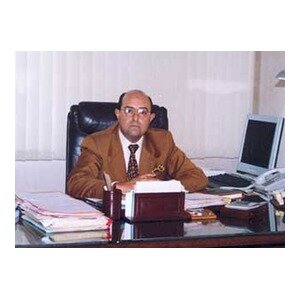Best Water Law Lawyers in Marrakesh
Share your needs with us, get contacted by law firms.
Free. Takes 2 min.
List of the best lawyers in Marrakesh, Morocco
About Water Law in Marrakesh, Morocco
Water Law in Marrakesh, Morocco is a specialized legal area focused on the regulation, management, and protection of water resources within the city and its surrounding regions. The legal framework covers public and private water usage, water allocation for agricultural, domestic, and industrial purposes, and the preservation of water quality. Given Morocco's semi-arid climate and the importance of sustainable water management, Water Law plays a critical role in balancing competing demands, ensuring equitable access, and promoting environmental conservation. The basis for Water Law in Morocco is set primarily by national laws with specific implementation and oversight carried out by local authorities in Marrakesh.
Why You May Need a Lawyer
Engaging a lawyer who specializes in Water Law can be essential in several scenarios:
- Disputes over water rights between landowners, neighbors, or communities
- Challenges or questions regarding water usage permits from local authorities
- Concerns over water pollution, contamination, or illegal extraction
- Issues around the construction of wells, boreholes, or irrigation systems
- Conflicts with municipal water supply services or billing
- Involvement in real estate or agricultural projects requiring water access
- Compliance with environmental regulations related to water
- Seeking compensation for water-related damages or shortages
A legal professional can provide guidance, represent your interests, and help you navigate the complex regulatory environment regarding water in Marrakesh.
Local Laws Overview
Water Law in Marrakesh operates under the national Law No. 36-15 relating to water, as well as local regulations. Key components include:
- Public ownership of water resources: Most water sources are classified as public property, managed by the state or delegated authorities.
- Water permits and concessions: To use significant amounts of water or to alter natural water courses, individuals and businesses must obtain permits.
- Protection against over-extraction: Limits are set on groundwater extraction to prevent depletion of aquifers and ensure long-term sustainability.
- Water quality and pollution controls: Legal standards regulate wastewater discharge and protect drinking water sources from contamination.
- Roles of basin agencies: In Morocco, river basin agencies, such as the Tensift Hydraulic Basin Agency, implement policies and monitor water management in the Marrakesh area.
- Users' associations: Local irrigation and user groups often play a role in the distribution and maintenance of water systems.
Enforcement of water laws and regulations is carried out by a combination of local municipalities, basin agencies, and ministries responsible for water and the environment.
Frequently Asked Questions
What is public water and private water in Marrakesh?
In Marrakesh, most water resources such as rivers, streams, and groundwater are considered public property managed by the government. Private water refers to artificially collected water, such as water from cisterns or rainwater harvesting on private land, as long as it does not affect public water resources.
Do I need a permit to dig a well on my property?
Yes. You must obtain a permit from the relevant water authorities before digging a well, as well as comply with the technical and environmental requirements set by local and national regulations.
Who manages water distribution in Marrakesh?
Water distribution is managed by local utility companies in partnership with the Tensift Hydraulic Basin Agency and municipal authorities. These entities oversee the supply and ensure compliance with legal standards.
What should I do if my water is contaminated?
Contact your local water supplier and the municipal health authorities immediately. You may also consult with a lawyer if you suffer damages or if the issue is not resolved promptly.
Can I be fined for illegal water use?
Yes. Unauthorized extraction, diversion, or pollution of water resources can result in fines, penalties, or criminal charges under Moroccan law.
Are there restrictions on water use during drought?
Yes. During times of water scarcity, the authorities may impose temporary restrictions or prioritize certain uses, especially for drinking water and essential services.
How can I resolve a dispute over irrigation water with neighbors?
Many disputes are settled through local water user associations or mediation facilitated by local authorities. However, legal action may be necessary for unresolved conflicts.
What legal protections exist for the environment and natural water sources?
Moroccan law provides strict regulations on pollution, wastewater treatment, and conservation of wetlands and river basins, with enforcement by environmental and water agencies.
Do I have to pay for using water from public sources?
Yes. Fees or tariffs are typically applied based on usage, particularly for agricultural or industrial purposes. Domestic water use is billed through municipal systems.
What are water basin agencies and how can they help?
Basin agencies, such as the Tensift Hydraulic Basin Agency, are responsible for the integrated management of water resources within specific hydrological areas. They handle permits, supervise water use, enforce laws, and mediate conflicts.
Additional Resources
Here are helpful resources and organizations dealing with Water Law in Marrakesh:
- Tensift Hydraulic Basin Agency (Agence du Bassin Hydraulique du Tensift): Manages local water resources and issues permits.
- Ministry of Equipment, Transport, Logistics and Water: National oversight and legislation regarding water management.
- Marrakesh Municipality: Handles local implementation, customer service, and policy enforcement concerning water supply.
- Local bar associations and legal aid offices: Provide referrals to specialized legal professionals in Water Law.
- Environmental NGOs active in Marrakesh: Can offer advocacy and support in environmental or water-related legal matters.
Next Steps
If you require legal guidance or representation regarding Water Law issues in Marrakesh, it is important to:
- Gather relevant documents such as permits, contracts, or government correspondence related to your water issue.
- Contact local authorities (Basin Agency, municipality, or water company) to clarify your situation if appropriate.
- Seek a consultation with a lawyer experienced in Water Law, particularly one familiar with the laws and practices in Marrakesh.
- Prepare a clear summary of your issue and your objectives for legal consultation.
- Explore mediation or administrative remedies if suggested by your lawyer or local officials.
Taking early and informed action can help resolve water-related legal concerns efficiently and safeguard your rights.
Lawzana helps you find the best lawyers and law firms in Marrakesh through a curated and pre-screened list of qualified legal professionals. Our platform offers rankings and detailed profiles of attorneys and law firms, allowing you to compare based on practice areas, including Water Law, experience, and client feedback.
Each profile includes a description of the firm's areas of practice, client reviews, team members and partners, year of establishment, spoken languages, office locations, contact information, social media presence, and any published articles or resources. Most firms on our platform speak English and are experienced in both local and international legal matters.
Get a quote from top-rated law firms in Marrakesh, Morocco — quickly, securely, and without unnecessary hassle.
Disclaimer:
The information provided on this page is for general informational purposes only and does not constitute legal advice. While we strive to ensure the accuracy and relevance of the content, legal information may change over time, and interpretations of the law can vary. You should always consult with a qualified legal professional for advice specific to your situation.
We disclaim all liability for actions taken or not taken based on the content of this page. If you believe any information is incorrect or outdated, please contact us, and we will review and update it where appropriate.















